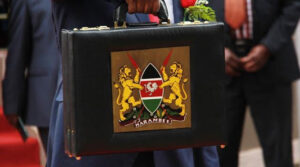Since the National Prayer Breakfast held on June 7th, 2023 at the Safari Park Hotel, my mind has continued to be transfixed by the running theme of the power of reconciliation. Observing the issues that bedevil our nation every day, I sincerely appreciate the urgent need to shun conflict with nature and one another at all costs.
Conflict rips apart the national fabric and destabilizes society on all fronts. According to the UN Human Impact Assessment (HIA), Twenty-two percent of households in Ukraine are spending over a quarter of their monthly income on healthcare. Further, sixty-five per cent of households reported a decrease in income since February 2022. Consequently, 44 per cent of households are unable to afford essential needs.
Such is the emotional, social and economic impact of conflict. Yet there is more. Conflict’s destructive effects extend beyond the death, injury and destruction experienced in the short term. A World Bank Report revealed how conflict and fragility can result in massive negative impacts that spread across decades and even generations.
Kenya’s 2007–2008 post-election violence attests to this. In March 2008, the UN Nations Human Rights Office revealed that, ‘more than 1,200 Kenyans were reported killed, thousands more injured, over 300,000 people displaced and around 42,000 houses and many businesses were looted or destroyed. A significant number of cases of sexual violence were also reported.’
In order to facilitate reconciliation, the Truth, Justice and Reconciliation Commission (TJRC) was formed. Amongst TJRC’s recommendations were these five: Acknowledgment of Historical Injustices; Reparations and Compensation; Institutional Reforms; National Unity and Reconciliation; Legal and Policy Reforms. It’s incumbent on the Government to continue implementing these recommendations. Hatujafika bado! We are not yet there.
Reconciliation is so vital that our Constitution explicitly mentions it as an alternative form of dispute resolution. Given its prominence in our society, what exactly does reconciliation entail and are we really practicing it?
Reconciliation entails restoration of fragmented parts into a whole. A reconciled society finds common footing and stops pulling in different directions. At a deeper level, reconciliation also entails reconnecting with nature and implementing its sustainability principles.
There is only one planet Earth and humans are not the sole inhabitants of this planet. We share this earth with countless other animal and plant species. Through sheer greed, we have interfered with the natural equilibrium of life on earth. A good example is the coronavirus that greatly destabilized humanity. According to the World Health Organization, there were nearly 800 million COVID-19 cases, resulting in almost seven million deaths.
The general scientific consensus shared globally is that the corona virus spilled over from wildlife in China’s Huanan Seafood Wholesale Market to humans. There were numerous wildlife being sold in that market including raccoon dogs and bamboo rats. They ended up transmitting coronavirus to humans. Such ailments are known as zoonotic diseases. They ensue when humans encroach into wildlife territory or vice versa. Such encroachment thrive in a human-wildlife conflict scenario.
Hence the need to reconcile with nature and revert to nature’s ‘factory settings.’ For instance, these settings dictate that forests should be allowed to replenish and thrive, not encroached into. When Mau Ecosystem was adversely affected Mara River agonized, tourism suffered. Through various coordinated concerted conservation efforts there was a reconciliation with the forest.
Such reconciliation is at the heart of the ‘One Health’ approach that is now spreading across the world. According to UNEP, ‘One Health is an effort to integrate human, animal, agricultural and ecosystem health to improve outcomes and address the triple planetary crisis. A One Health approach would help prevent disease, reduce costs, improve food safety and security, and save lives.’
Therein lies the power of reconciliation with both nature and one another. Importantly, our leaders and citizens alike should embrace reconciliation. Reconciliation at all levels is significantly cheaper than war. Why squander our God given reconciliation opportunity when we know that the consequences are so dire? Think green, act green!



